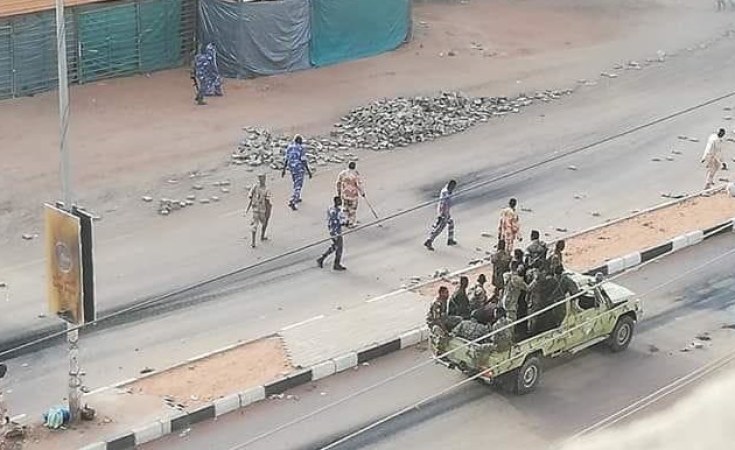London — A report by several human rights organisations has accused both the Sudanese Armed Forces (SAF) and the Rapid Support Forces (RSF) of systematically exploiting the conflict in Sudan to carry out mass arbitrary detentions, targeting civilians based on ethnicity and political participation.
Published on September 30, the report highlights the warring parties are both targeting people "primarily based on ethnicity, tribal affiliation, civil society activities and activism". These actions are designed to suppress resistance, consolidate power, and instil fear, according to findings by REDRESS, ACCESS, the Darfur Network for Human Rights (DNHR), and the SOAS Centre for Human Rights Law.
The report builds upon a prior submission made to the United Nations Human Rights Council Fact-Finding Mission for Sudan (FFM). Bolstered by testimonies from survivors and witnesses, the findings provide further evidence of the ongoing human rights violations linked to mass detentions across Sudan, the report states.
"There is clear evidence showing patterns of arbitrary arrest, arbitrary detention, ill-treatment (some amounting to torture), and death in custody, which indicate widespread and systematic practices, if not deliberate policies, adopted by the warring parties." Many of the violations carried out by both the RSF and SAF, along with their affiliates, may constitute torture, war crimes, and crimes against humanity.
The Sudanese de facto authorities have positioned the Sudanese National Committee of Investigation as a legitimate body to address the situation. However, "the National Committee of Investigation lacks the independence, technical expertise, and trust of survivors to credibly investigate detention abuses".
The report asserts that these same authorities are taking steps to shield certain perpetrators from accountability. Among these measures is the strengthening of the General Intelligence Service, which is linked to the SAF, by restoring its powers of arrest and detention and granting broad immunities to its officers.
This move, according to the report, reverses significant legal reforms implemented during Sudan's transitional period and underscores the regime's disregard for accountability and international law.
Rupert Skilbeck, Director of REDRESS, criticised the ongoing actions of the warring parties: "Rather than attempt to mitigate the immense devastation and humanitarian catastrophe caused by their atrocities, the Sudanese Armed Forces and the Rapid Support Forces continue to exploit the conflict to target civilians."
He urged states to act swiftly to negotiate a comprehensive ceasefire and ensure that those responsible for detention abuses and other violations are held accountable. Skilbeck recommended utilising diplomatic measures, engaging directly with states obstructing the peace process, renewing the FFM's mandate, supporting International Criminal Court (ICC) investigations in Darfur, and extending the Darfur arms embargo.
On Wednesday, the UN Human Rights Council voted in Geneva to extend the mandate of its fact-finding mission in Sudan, with 23 nations supporting the decision.
The report, "Serious Human Rights Violations Perpetrated in the Context of Mass Civilian Detention in Sudan", can be accessed on the REDRESS website.


